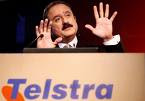Team Trust Drivers: What do you feel are the most important behaviours that contribute to building trust within teams?Do these factors change if the teams are
(a) cross-cultural and cross-functional
(b) co-located or geographically dispersed
(c) drawn from different companies in a collaborative / joint venture situation
There could be more than a dozen behaviours that affect the 'trust' factor in a team. One's psychology, which is a more encompassing term than behaviours, often change when one interacts with other person(s).
I'd rather look at the other end of the funnel - what the team is set out to achieve and then working backwards to find out the appropriate behaviours that will help us getting there.
In a business setting and from the 'trust' perspective, I'd suggest the following behaviours are important.
Respect, honesty, perceptive, experience, high spirits, helpful, subject matter knowledge, understanding, commitment... the list can go on and I'm not kidding they're all important psychology factors because each one's definition of 'trust' is personal and unique.
Can we just name a few and call them critical? I suppose one knows the answer.
The different environments, as you listed them out, are of course important considerations. As one's psychology is affected by one's perception of one's external environments, it's really hard to prescribe 'trust factors' without any background information of the team.
The approach I'd take would be to invest time with the team, getting to know the members, understanding the psychology, find out if there are any special concerns, and then establishing the 'trust' factors for this team.
-----------------------------------------------------------------
Hi Hamish,
Thanks for your note. Your question is very interesting which thrilled me when I answered your questions.
I like you pointing out 'common ground' as one of the key element. Having worked in consulting for some years, I felt that there's little time for us to flush out these critical elements (as we're on billable time) and we're often pressed to drill down to the tangible metrics such as goals, objectives, plans, schedule...
In Asia and esp Greater China, we've two devils called time and speed. We're succumbed to them.
It'd be a success if we could discover 'common ground', and if you wouldn't mind me rephrasing it to 'common interests', at the early stage of an assignment.
I remember this in a training course. We're debating whether we should focus on earning 'trust' or earning 'respect'. The argument is that it's hard to build trust in limited time but it should be easier to garner respect... .. if one respects another, one would take the other person seriously and be prepared to work with that person... the question then becomes how to build 'respect'?
Best Regards
Michael
-----------------------------------------------------------------
On 11/24/08 5:46 PM, Hamish Taylor wrote:
--------------------
Hi Michael
Firstly many thanks for sharing your thoughts and indeed the thought provokers.
I think we are very much on the same page in terms of approach and also making sure that teams get focused on the end goal and then work out how to get there; trust as you rightly say is context based and the factors that are critical for one person, may be trivial for another and vice versa.
The key to success is finding the common ground, establishing the solid shared values and then encouraging the "right behaviours" to prevail whilst creating the environment in which the occasional "wrong behaviour" can be dealt with and overcome.
Thanks again for sharing your views, they're much appreciated.
Kind regards
Hamish.
-------------------------------------------------------------
On 11/24/08 3:05 PM, Michael Ling wrote:
--------------------
There could be more than a dozen behaviours that affect the 'trust' factor in a team. One's psychology, which is a more encompassing term than behaviours, often change when one interacts with other person(s).
I'd rather look at the other end of the funnel - what the team is set out to achieve and then working backwards to find out the appropriate behaviours that will help us getting there.
In a business setting and from the 'trust' perspective, I'd suggest the following behaviours are important.
Respect, honesty, perceptive, experience, high spirits, helpful, subject matter knowledge, understanding, commitment... the list can go on and I'm not kidding they're all important psychology factors because each one's definition of 'trust' is personal and unique.
Can we just name a few and call them critical? I suppose one knows the answer.
The different environments, as you listed them out, are of course important considerations. As one's psychology is affected by one's perception of one's external environments, it's really hard to prescribe 'trust factors' without any background information of the team.
The approach I'd take would be to invest time with the team, getting to know the members, understanding the psychology, find out if there are any special concerns, and then establishing the 'trust' factors for this team.

 MasterChef Australia Judge Matt Preston denied the competition was a popularity contest, as figures today confirmed it was the most-watched Aussie TV show ever
MasterChef Australia Judge Matt Preston denied the competition was a popularity contest, as figures today confirmed it was the most-watched Aussie TV show ever







